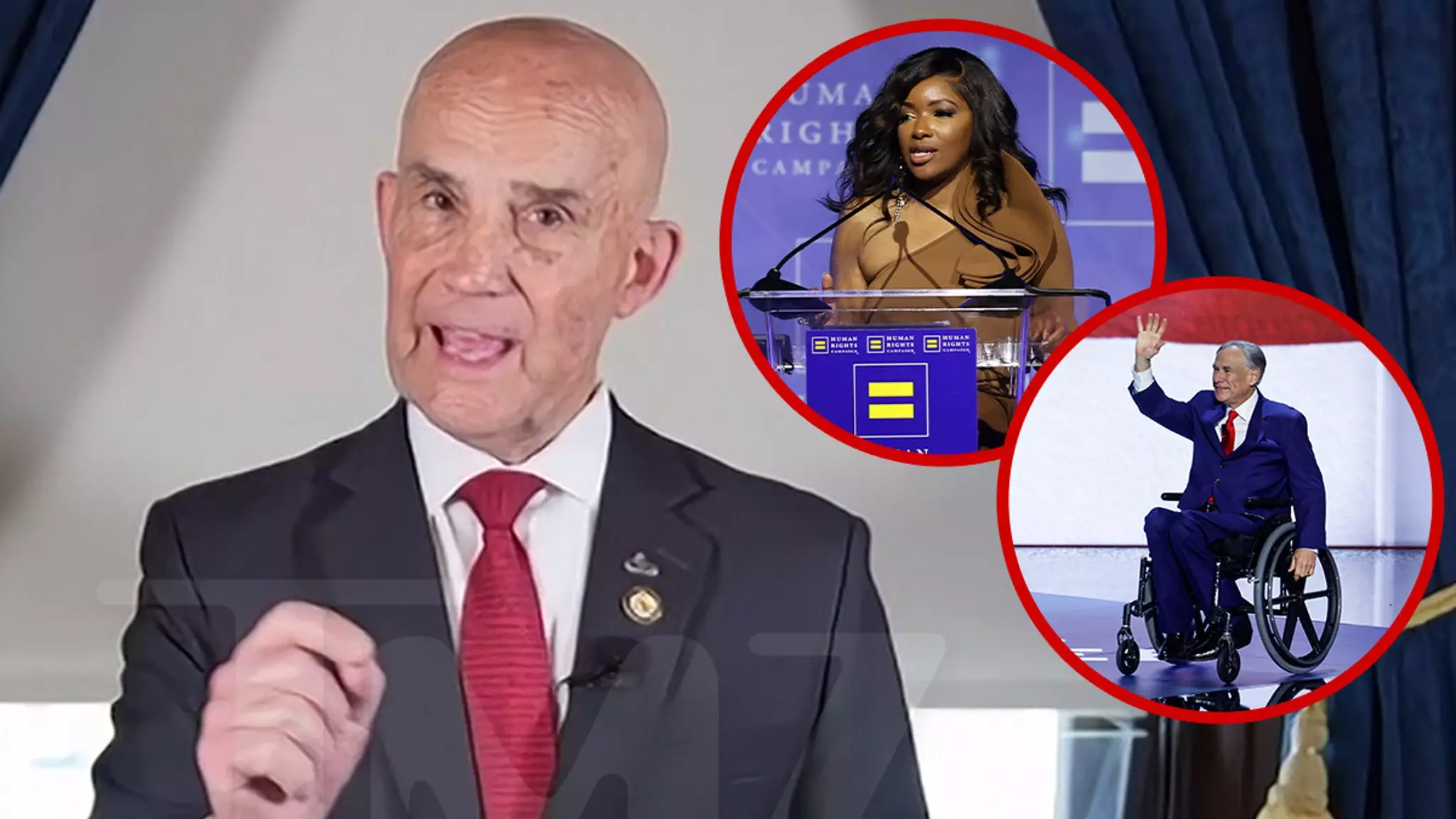In the tangled web of modern political discourse, humor often dances dangerously on the edges of insensitivity. The recent comments from Congresswoman Jasmine Crockett regarding Texas Governor Greg Abbott, where she cheekily referred to him as “Governor Hot Wheels,” have ignited a firestorm of criticism that raises uncomfortable questions about the appropriateness of political banter, particularly concerning disabilities. Meanwhile, Congressman Keith Self, who has come forward as a critic of Crockett, has displayed an intriguing contradiction by deflecting similar past behaviors from prominent figures, namely former President Donald Trump. This inconsistency in accountability reveals the challenges of navigating both humor and rhetoric within the political free-for-all.
The Battle of Narratives: Bullying vs. Self-Deprecation
Self’s portrayal of Crockett as a bully for her comments sheds light on the political theater’s selective outrage. He has urged Congress to refrain from censuring her, suggesting that her antics may inadvertently harm her own party more than any sanction might. This perspective reflects an alarming trend in which party affiliation and personal vendettas intermingle, muddying the waters of ethical dialogue in politics. Self argues that there is a crucial distinction between self-deprecating humor—where individuals can joke at their own expense—and the derision aimed at others, which he considers unacceptable. Yet, this line seems to blur in practice, particularly when one reflects on Trump’s infamous mockery of a reporter with a disability.
Defensive Denials: Double Standards at Play
Interestingly, when confronted with Trump’s video mocking New York Times reporter Serge Kovaleski, Self adopted a defensive stance, pivoting the conversation and refusing to apply the same scrutiny to the past. This reaction not only reveals a bias in how accountability is applied but also exposes a rift in the moral fabric of political conduct. If one politician’s behavior can be so easily overlooked while another faces condemnation, it undermines the integrity of the very standards they hold each other to. Crockett’s insistence that her comment was not intended as an attack on Abbott’s disability points to a deeper issue of intent versus impact in political speech—a distinction that often gets lost in the chaos of news cycles.
Politics and Comedy: A Delicate Balance
The intersection of politics and comedy requires careful consideration of context and the potential for harm, particularly when disabilities are involved. While self-deprecating jokes can serve to humanize politicians, they risk trivializing serious issues when leveraged against opponents. Crockett’s defense emphasizes a desire to critique Abbott’s policies rather than his disability; however, the delivered message still impacts the public’s perception of both individuals involved. This situation underscores the need for political figures to navigate their rhetoric with sensitivity, recognizing that the ramifications of their words extend far beyond the political arena.
As we witness these dynamics play out, it becomes crucial to interrogate not just the statements of individual politicians, but the broader culture they cultivate. The dialogue surrounding humor in politics must evolve, encouraging accountability on all fronts, while also fostering an atmosphere where robust debate can occur without the risk of alienating or belittling vulnerable communities.

